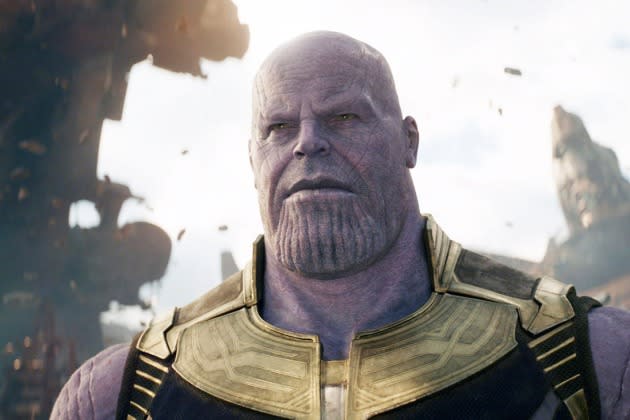Thanos VFX Technology Lawsuit Against Disney Dismissed by Judge

Disney has won a skirmish in sprawling litigation surrounding the use of allegedly stolen VFX technology to animate some of the entertainment giant’s most iconic characters in its highest-grossing movies.
A federal judge on Feb. 21 dismissed the suit from Rearden, finding that the company didn’t back up its claims of copyright and patent infringement. U.S. District Judge Jon Tigar concluded that there’s not enough evidence that its VFX technology did the majority of the work in creating the characters and that, as a result, the directors may be the “authors of the results of the facial motion capture.”
More from The Hollywood Reporter
Zach Galifianakis to Star in 'Lilo & Stitch' Live-Action Movie (Exclusive)
Disney Reorg: Dana Walden, Alan Bergman Gain Streaming, International; Rebecca Campbell to Exit
The long-running case at the intersection of Hollywood and Silicon Valley threatened to delay multiple movies at Disney. At the core of the dispute, software company Rearden asserted ownership of lauded VFX technology called MOVA Contour that had improperly been licensed by DD3, an outfit founded by a former Rearden employee.
In a prequel to the legal showdown between Rearden and Disney, a judge found in a bench trial that Rearden owns MOVA. The order left Disney, which was sued by Rearden on the basis of using technology stolen by DD3, vulnerable to massive damages since it had contracted with the Chinese firm and extensively employed MOVA in several movies.
Disney won’t have to surrender a cut of profits from Avengers: Age of Ultron or Guardians of the Galaxy, with the judge ruling in June that those movies are off limits on summary judgment in a separate suit. But, despite the Feb. 21 ruling, Disney still faces the prospect of losing proceeds from Beauty and the Beast, Avengers: Infinity War and Avengers: Endgame, which have collectively grossed more than $6 billion, due to ongoing litigation with Rearden.
The copyright infringement claims turned on the degree of MOVA’s contribution to the movies.
Rearden’s copyright infringement allegations stressed that DD3 essentially used MOVA to animate Thanos, who’s played by Josh Brolin in the Avengers movies. The company pointed to spreadsheets created by DD3 that include the terms “MOVA” and “Thanos_Head” coinciding with production for Avengers: Infinity War and Avengers: Endgame, which allegedly show that DD3 employees worked on the films.
Dismissing the claim the last time around, the court found Rearden didn’t properly allege copyright infringement since MOVA can’t operate “without any substantial contribution from the actors or directors.” Tigar instructed Rearden to offer evidence that the technology did the majority of the work in creating the characters.
“Here, Rearden alleges the opposite,” the judge wrote in tossing the claim a third time. “To substantiate its theory of vicarious infringement, the complaint relies on Disney’s ‘contention in other litigation that the directors’ contribution ‘is substantial and performs the lion’s share of the creativity in the facial motion capture.’ For this reason, the Court holds that the complaint fails to allege that the output files amount to protectable expression.”
Rearden had asked the court to infer that “DD3 must have created these files using the MOVA Contour software” because of its “own knowledge’ of how the technology works. But Tigar concluded that he’s “left to guess as to how modification of an existing output file indicates that the file was created by the operation of MOVA system during facial capture shoots for a specific project” unless the company “shares that knowledge with the court.”
“Stripped of its conclusory allegations, the complaint fails to allege that DD3 performed facial capture shoots using the MOVA system,” Judge Tigar wrote.
Tigar also rejected allegations of patent infringement because the patents in question “merely invoke generic processes” rather than featuring specific techniques. He wrote: “Because the claims fail to recite specific means of implementing the abstract concept of markerless facial motion capture, the Court holds that the patents are directed to abstract ideas.”
Rearden has also sued Marvel, Fox and Paramount, among other studios.

 Yahoo News
Yahoo News 